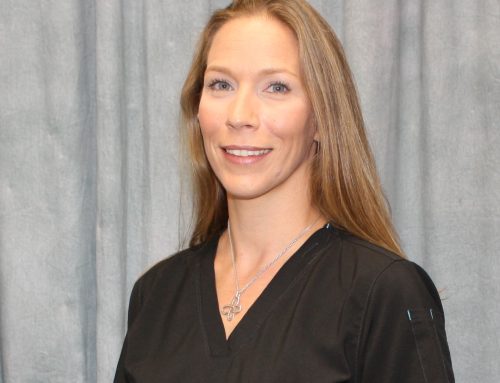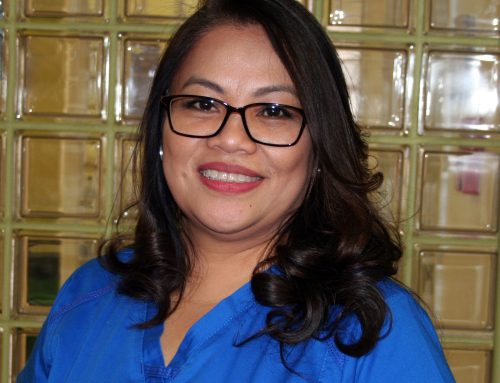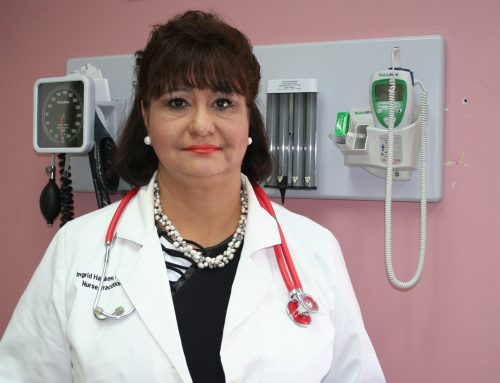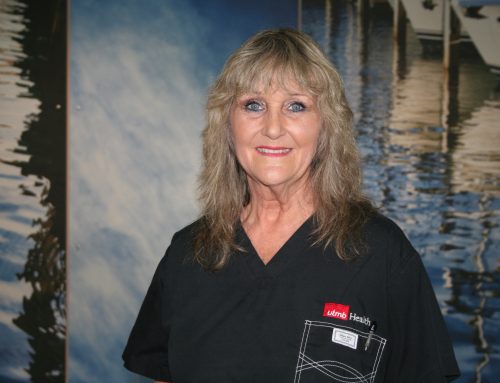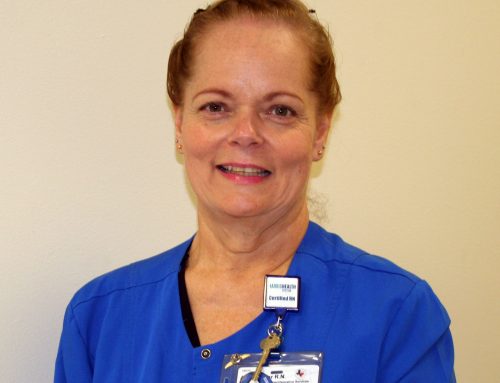2017 Gold Medalist – Nursing Education: Faculty
Anne Young, EdD, RN, Texas Woman’s University College of Nursing
One of five children born to a nurse and an engineer, Anne Young got the message early on that education was important. “There was no specification about what subject we would major in, but we grew up knowing that we would all get a college education, and we all did,” Dr. Young says.
Her mother worked part time in Labor & Delivery, and Dr. Young remembers that she really liked what she did and believed it was important work. “That was a major influence. I knew I would do something that would be beneficial to other people in a tangible way, and nursing fit into the context of that calling.”
She enrolled in the four-year Bachelor of Science program at Texas Woman’s University (TWU), which she completed in 1973. “I learned so incredibly much during my first year of nursing. I had not given much thought about what my career would be. I was newly married and I loved nursing, but I wanted to look at all the opportunities. I began to think that I needed to complete more formal education.”
Eighteen months after she finished her baccalaureate degree, she was working full time in the Emergency Department and taking her first course toward a Master of Science degree at TWU. When her husband graduated from college, she went back to school full time, graduated in 1977, and accepted her first position at Texas Woman’s University teaching undergraduate students in clinical nursing.
“I had no idea how much I was going to love it,” she says. “It was a time of exploration and developing new skills. I found that being truthful with my students was a good thing. I would tell them, ‘I don’t know the answer but let’s go find out.’ You don’t need to know everything in practice, you just need to know where and how to find the knowledge.”
Dr. Young had been in nursing education for a few years when TWU began encouraging faculty be doctorally prepared. She hadn’t quite planned a doctoral education into her career, but with a little motivation from Texas Woman’s University, she began part-time doctoral studies at the University of Houston and completed her EdD in 1986.
“Getting my doctorate helped me view my work more theoretically and approach the educational arena in a new ways,” she says. “It challenged me and kept me thinking. Then after I received my doctoral degree, I found myself enrolled in more courses. Qualitative research, for example, was not part of my doctoral curriculum, nor was power analysis or generalizability theory. Now they’re seeing a new set of things coming on the horizon in health care that will change the way we practice. It’s important to leave yourself open to surprise.”
In her nomination of Dr. Young, Ainslie Nibert, PhD, wrote, “For over 40 years, Dr. Young has consistently displayed a professional demeanor and pleasant attitude while serving as a full-time professor, a well-known advocate for students, and a highly sought-after mentor among faculty and staff at the Texas Woman’s University College of Nursing. She is a well-known voice for academic nursing education in the state of Texas and has secured her reputation as a master educator in nursing. Since 1987, she has served as the chair for 61 PhD dissertations, and as a dissertation committee member for an additional 68 PhD students in the TWU College of Nursing. Her students are extremely well prepared for scholarly work upon graduation. She has touched the lives of hundreds of nurses, elevating their professionalism through graduate education.”
Dr. Young says that TWU has been very successful in helping students prepare and present abstracts for research conferences as part of the dissertation process. “We want them to hear about others’ research, and we want to connect them with other researchers. We know that if students get that one article published – and some do more than that – or if they write abstracts that are presented for conference presentations, they will likely do that for the remainder of their careers.”
Dr. Young is the 2017 recipient of the TWU Forty-Year Service Award. She is a past recipient of the Association of Pediatric Hematology Oncology Nurses Writing Award, was named a Distinguished Lecturer of Sigma Theta Tau International Honor Society of Nursing and an Outstanding Member of the Houston Chapter of Sigma Theta Tau International, and is among the Great 100 Graduates of Texas Woman’s University College of Nursing. Her research has been published widely in refereed journals.
“Research is essential because you always need to know more when you teach,” she says. “To be a successful educator, you assume many roles – the teacher, cheerleader, problem solver. The most important thing is to be positive about what you do and enjoy the process.
“One of the great things about nursing is there’s always something new to learn,” she says. “The constant quest for knowledge has been a very enriching process throughout my career. Teaching is a two-way street. I’ve often told my students that they are responsible for my education… so let’s get busy now. You form an alliance with the students you teach, and it’s very exciting to see them attain their educational goals. They may come in feeling that they’re not very competent in what they do but then they discover they have an entire set of capabilities and a capacity to think totally differently about what they’re doing. I learn as much from them as they learn from me. The things I’ve learned from my students have enriched everything I do and have broadened my perspective about people, the world, and health care concerns. I have my students to thank for that. As for the future, education is a part of my identity. I know that I won’t be doing it forever, but I’m not quite ready to hang up my spurs.”
